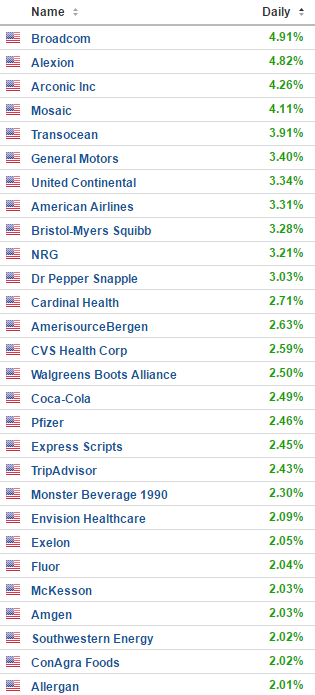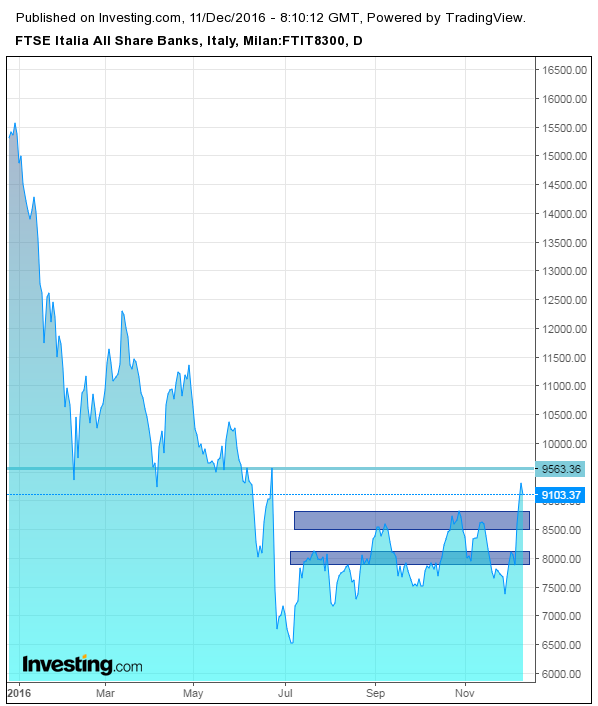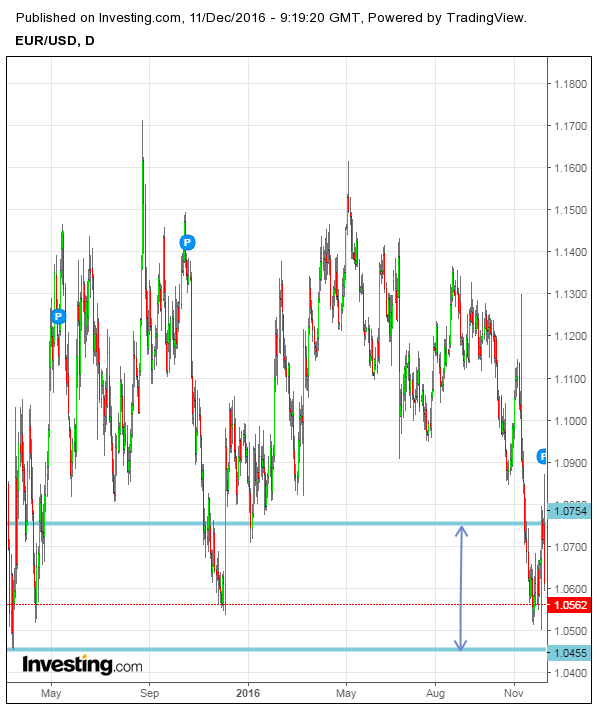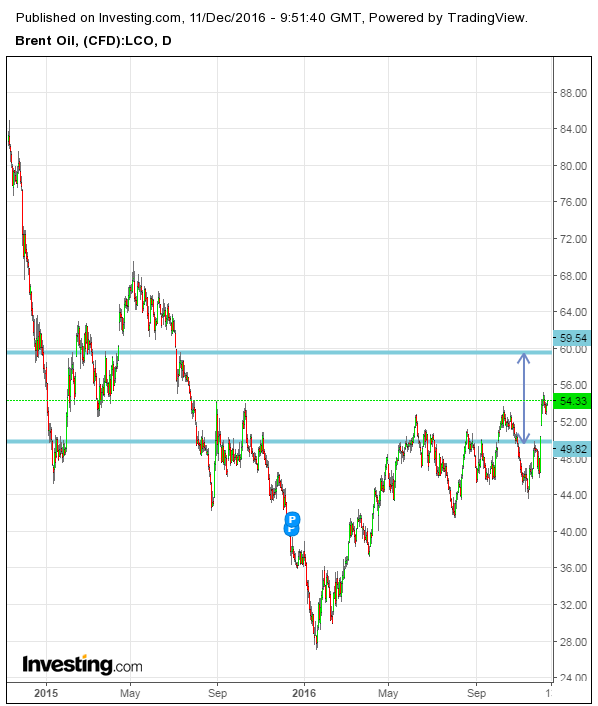by Eli Wright
Last week, US Indices continued their push higher mostly ignoring potential risk events. European markets treated last Sunday's Italian referendum vote as a minor speed bump, while oil and the USD both continued their upward trajectory over the course of the week. And last Thursday, the ECB kept rates steady but extended their current QE monetary policy of bond buying through the end of 2017, at least.
Here’s how it all played out:
Wall Street to all-time highs
Wall Street had a terrific week with all the majors breaking records. This was the fourth time over five weeks that the major indices closed up on the week. As well, markets saw their sixth consecutive day of gains on Friday.
The Dow added more than 500 points to close at a new all-time high of 19,756.85—within striking distance of the much heralded 20,000 benchmark, which could very well be reached before the end of the year. In particular, Transports gained more than 300 points. The NASDAQ had a record close at at 5,444.50, while the S&P 500 hit a new high of 2,259 to finish the week.
Following a better-than-expected earnings report, Broadcom (NASDAQ:AVGO) was the largest daily gainer among SPX companies for the week. Several travel-related companies, including United Continental (NYSE:UAL), American Airlines (NASDAQ:AAL) and TripAdvisor (NASDAQ:TRIP) also fared well. Of particular note, fully one third of the biggest gainers (see chart below) were healthcare stocks including Bristol-Myers Squibb (NYSE:BMY) and Pfizer (NYSE:PFE), indicating, perhaps, that the healthcare sector—and Big Pharma in particular—may have shrugged off President-elect Trump’s recent critical comments regarding drug pricing.

Italians vote no to constitutional reform
Italian voters emphatically said no to constitutional reform and Prime Minister Renzi tendered his resignation as promised, though whether he actually ends up completely out of Italian politics is yet to be seen. Markets were rightfully nervous about the possibility of as many as eight Italian banks failing should the referendum not pass, followed by a possible contagion effect on EU and global banks.
As it turned out, the correctly predicted victory for the no vote had already been factored in by markets, and indices in the UK, Europe and the US simply pushed higher. Italian banks gained 15% on the week, rising to six-month highs, although they ended on Friday with a down note, losing 2.2% on the day.

Italian banks could continue higher next week, however, toward the next critical level at 9,563.36. Still, since too many of the country's banks remain in precarious financial positions—carrying loads of bad debt and in desperate need of additional capital infusions—it's just as likely they could turn back toward major resistance between 8,500-8,800, before possibly falling further, to 8,000.
EURO STOXX 600 Bank Futures rose a modest 3.5 percent, while in the United States, the S&P Bank ETF (NYSE:KBE) finished 4.6% higher. As in Italy, US and European bank stocks took a small dip on Friday and could retrace back towards stronger resistance levels.
The dollar finished strong
The dollar struggled for much of the week, with the Dollar Index briefly dropping below 100 at one point. However, it found its footing on Friday, rising to 101.60.
The Japanese yen fell 1.5% to a ten-month low. Sterling also had a down week, falling 1.25% versus the dollar, to $1.259.
The euro was hit hard as well, as economists who had been looking forward to asset purchases extending for no more than six months watched the ECB prolonged its stimulus through the end of next year, with only a small drop in bond buying from March-December. The euro, which had been up near $1.075 earlier in the week, closed down at $1.055. That level could yield to bearish pressure and $1.045 could easily be broken. However, if it holds, the euro could retrace back to $1.075.

Precisely where the dollar goes from here is largely in Chair Yellen’s hands. It’s basically a given that the Fed will raise rates by 25 base points this week, markets will therefore be watching for any clues as to when the next rate hike, or hikes, will occur.
Commodity currencies, including the Canadian dollar and Russian ruble, rose along with oil – up 1% and 3%, respectively.
Non-OPEC nations agree to cut oil production
Oil dropped in the middle of last week following skepticism on Tuesday and Wednesday regarding the OPEC deal to cut output. However it rebounded at the close: Brent ended Friday at $54.36 and crude finished at $51.49. Yesterday, oil received a big potential boost for this coming week's open as OPEC and non-OPEC nations struck their first non-production deal since 2001. Russia promised to remove 300,000 barrels per day from the market, while other non-OPEC countries, including Oman, Venezuela, Mexico, Bahrain and Azerbaijan agreed to match those cuts. Between OPEC and non-OPEC nations, this represents a 2% decrease in oil production for a six-month period beginning in January.
The success of the deal now hinges on whether or not countries adhere to the new restrictions. Oil prices have surged by 15% since OPEC first announced their deal on November 30. At this point, oil has near-term $60 upside, However, it could also retrace back below $50 if rumors of the deal falling apart gain traction—or US shale output increases become reality.

